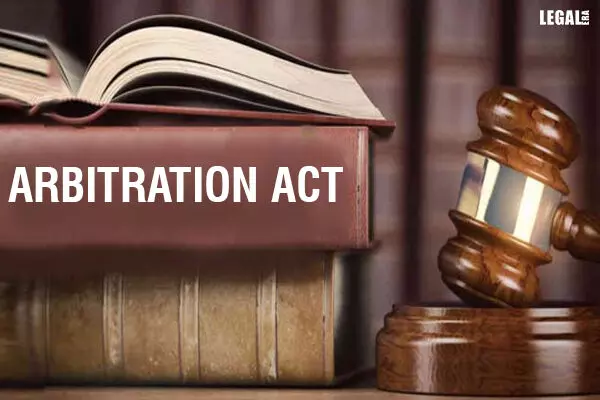- Home
- News
- Articles+
- Aerospace
- Artificial Intelligence
- Agriculture
- Alternate Dispute Resolution
- Arbitration & Mediation
- Banking and Finance
- Bankruptcy
- Book Review
- Bribery & Corruption
- Commercial Litigation
- Competition Law
- Conference Reports
- Consumer Products
- Contract
- Corporate Governance
- Corporate Law
- Covid-19
- Cryptocurrency
- Cybersecurity
- Data Protection
- Defence
- Digital Economy
- E-commerce
- Employment Law
- Energy and Natural Resources
- Entertainment and Sports Law
- Environmental Law
- Environmental, Social, and Governance
- Foreign Direct Investment
- Food and Beverage
- Gaming
- Health Care
- IBC Diaries
- In Focus
- Inclusion & Diversity
- Insurance Law
- Intellectual Property
- International Law
- IP & Tech Era
- Know the Law
- Labour Laws
- Law & Policy and Regulation
- Litigation
- Litigation Funding
- Manufacturing
- Mergers & Acquisitions
- NFTs
- Privacy
- Private Equity
- Project Finance
- Real Estate
- Risk and Compliance
- Student Corner
- Take On Board
- Tax
- Technology Media and Telecom
- Tributes
- Viewpoint
- Zoom In
- Law Firms
- In-House
- Rankings
- E-Magazine
- Legal Era TV
- Events
- Middle East
- Africa
- News
- Articles
- Aerospace
- Artificial Intelligence
- Agriculture
- Alternate Dispute Resolution
- Arbitration & Mediation
- Banking and Finance
- Bankruptcy
- Book Review
- Bribery & Corruption
- Commercial Litigation
- Competition Law
- Conference Reports
- Consumer Products
- Contract
- Corporate Governance
- Corporate Law
- Covid-19
- Cryptocurrency
- Cybersecurity
- Data Protection
- Defence
- Digital Economy
- E-commerce
- Employment Law
- Energy and Natural Resources
- Entertainment and Sports Law
- Environmental Law
- Environmental, Social, and Governance
- Foreign Direct Investment
- Food and Beverage
- Gaming
- Health Care
- IBC Diaries
- In Focus
- Inclusion & Diversity
- Insurance Law
- Intellectual Property
- International Law
- IP & Tech Era
- Know the Law
- Labour Laws
- Law & Policy and Regulation
- Litigation
- Litigation Funding
- Manufacturing
- Mergers & Acquisitions
- NFTs
- Privacy
- Private Equity
- Project Finance
- Real Estate
- Risk and Compliance
- Student Corner
- Take On Board
- Tax
- Technology Media and Telecom
- Tributes
- Viewpoint
- Zoom In
- Law Firms
- In-House
- Rankings
- E-Magazine
- Legal Era TV
- Events
- Middle East
- Africa
Allahabad High Court: Narrow Scope of Judicial Review in Arbitration Appointment

Allahabad High Court: Narrow Scope of Judicial Review in Arbitration Appointment
The Allahabad High Court has ruled that courts have limited authority when reviewing applications for arbitrator appointments under Section 11(6) of the Arbitration and Conciliation Act, 1996. This means they cannot delve into debatable questions of fact during the process.
Acting Chief Justice Manoj Kumar Gupta observed that the court's role is confined to cases where the non-arbitrability of the claim is beyond a shadow of a doubt. This narrow scope was established in the Supreme Court's judgement in Vidya Drolia and Others vs. Gujarat Informatics Limited.
The case involved an applicant seeking the appointment of an arbitrator in a disagreement with the opposing party. The opposition argued the dispute was "excepted" from arbitration due to Clause 63 of the General Conditions of Contract 2014 (Indian Railways). They claimed the contract was determined under Clause 61.1, making it an "excepted matter." Additionally, they argued that the applicant bypassed proper procedures by not first making a claim to the General Manager before invoking arbitration.
The applicant contested these claims, arguing that the determination was not made by the authorised officer and that they did communicate their claim to the Chief General Manager, who rejected it.
The Court acknowledged the central question: whether the dispute was indeed arbitrable. They further identified a secondary question regarding the applicability of the "excepted matters" clause based on proper notice and potential waiver.
Recognising the factual nature of the dispute, the Court highlighted that resolving it requires evidence evaluation, which is beyond the scope of their limited power under Section 11(6).
Therefore, the Court concluded that the dispute was not "clearly non-arbitrable" and that the factual questions involved should be addressed by an arbitrator. They also ruled that the opposing party could have referred the dispute to arbitration if they believed it fell under "excepted matters."
The applicant's request for an arbitrator appointment was ultimately granted.



